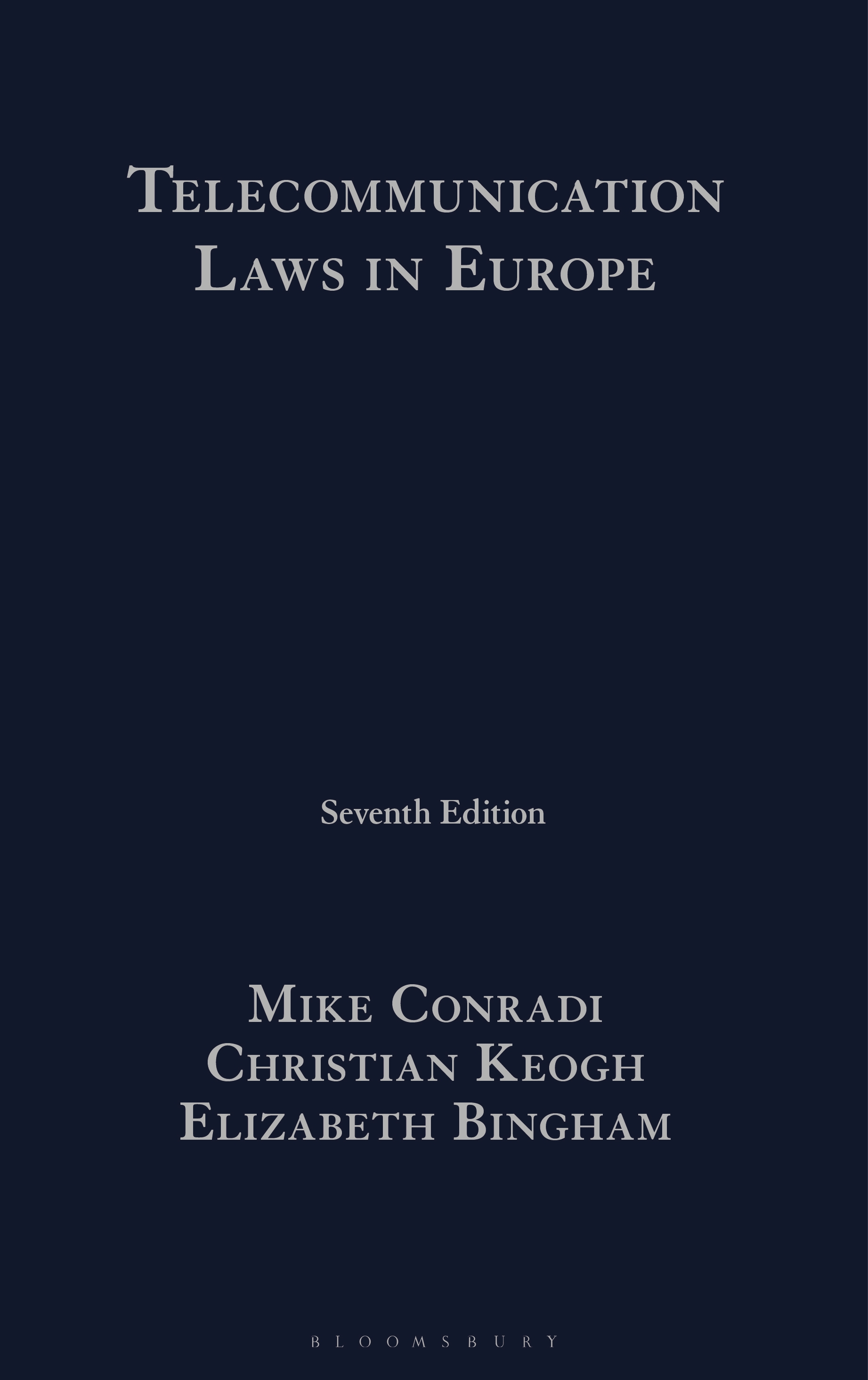Q & A with Mike Conradi, Christian Keogh and Elizabeth Bingham
Mike Conradi, Christian Keogh and Elizabeth Bingham are the authors of Telecommunication Laws in Europe.
This is included in our Intellectual Property and IT Law service.
What have been the biggest disruptors to telecommunication laws in Europe since the last edition?
Since the last edition of Telecommunication Laws in Europe there has been major reform by way of the introduction of the European Electronic Communications Code (‘EECC’) in December 2018, which replaced and repealed the Framework Directive, Authorisation Directive, Access Directive and Universal Services Directive (which prior to the EECC's introduction, were the four main directives applicable to electronic communications in the EU).
While the EECC sounds like a complete overhaul of EU regulation, much of the existing regulation contained in the prior directives remains, albeit now in the form of a single consolidated text. The EECC builds on the prior directives, including providing stronger protections for consumers and other end users, introducing internet access services as a universal service, and amending rules relating to access to networks so as to encourage competition and make investment in high capacity networks easier, among various other updates.
A more recent substantive legal development has been the introduction of the new Gigabit Infrastructure Act (‘Act’) by the European Council on 29 April 2024. The Act replaces the Broadband Cost Reduction Directive (‘Directive’). The Act builds on the framework established by the Directive, being focused on facilitating and encouraging joint use of physical infrastructure to speed up the deployment of telecom networks, addressing some of the perceived challenges with that Directive and updating positions for today's technology extending the scope of obligations to very high capacity networks (as opposed to high capacity networks under the Directive). The new edition of the Telecommunications Laws in Europe therefore is a major update in the series and is an important edition for lawyers and non-legal executives involved in telecoms to have.
What would you say is the biggest challenge that the telecommunications industry might face over the next five years?
The single biggest challenge that faced the telecommunications industry recently was the Covid-19 pandemic. The telecommunications sector, while affected, weathered this period better than other sectors due to the surge in network traffic, among several other reasons. The after effects of Covid-19 are providing some challenges to telecom operators, such as ongoing economic uncertainty and the cost of living crisis, impacting on investment decisions and providing downward pressure on retail prices.
Other challenges for the telecommunications industry include the lukewarm success of 5G, and whether a use case for 5G monetisation will emerge. Ongoing geopolitical issues have also placed the security of public telecom networks at the heart of the interest of regulators – in the UK this has required telecom operators to comply with detailed new technical standards so as to reduce the risks of security incidents to their public telecom networks.
Do you think there is a need for more telecommunications regulations in Europe?
The regulation of telecom markets is generally only required where a market is not competitive; the position remains under the EECC that ex-ante regulation can only be imposed where an undertaking is found to have significant market power in a defined market.
Broader regulation can be needed on a case by case basis in response to specific issues arising. For example, the security of telecom networks where a national approach must be established in respect of critical national infrastructure, or regulation which supports and facilitates the roll-out of electronic communications networks, as has been seen through the Broadband Cost Reduction Directive and its replacement, the Gigabit Infrastructure Act.
Overall, we think the European model imposes an appropriate level of regulation – though there are some cases (notably the Open Internet Regulation and the Roaming Regulation) where ex-ante regulations have been introduced without a market review exercise, and this has had unforeseen consequences in terms of preventing the offer of retail packages that might have been attractive to consumers.
What is the most important lesson you have learned whilst working in telecommunications law?
The most important lesson we have learned is that competition in telecoms services is both possible and desirable. Appropriate regulation will encourage competition and this will benefit consumers through the introduction of new or more innovative services, and it will reduce prices. Our practice works very internationally and we have seen many examples where regulations have acted to reduce rather than increase competition, for example to protect incumbent operators. This invariably leads to worse outcomes for consumers.
We would also say that the European model (which was developed with strong influence from the UK) of how to regulate telecoms (which ex-ante regulation introduced only after a market review shows it is needed) is a sensible and pragmatic model, and it is one which is emulated in many other countries (or at least which they attempt to emulate). Most countries in Europe have thriving and competitive telecoms markets, at least compared to many other countries, and this is a success of European telecoms regulation which perhaps more should be made of within the European Commission.

